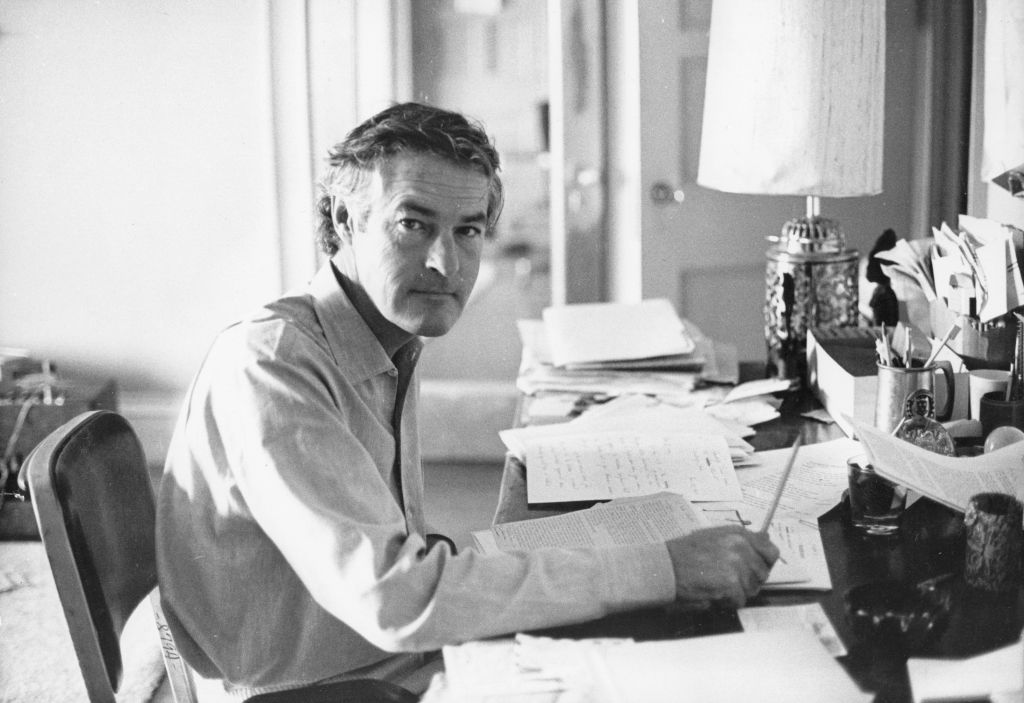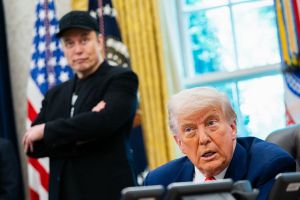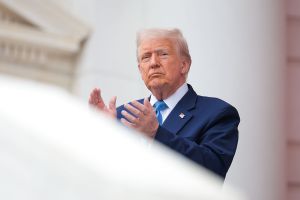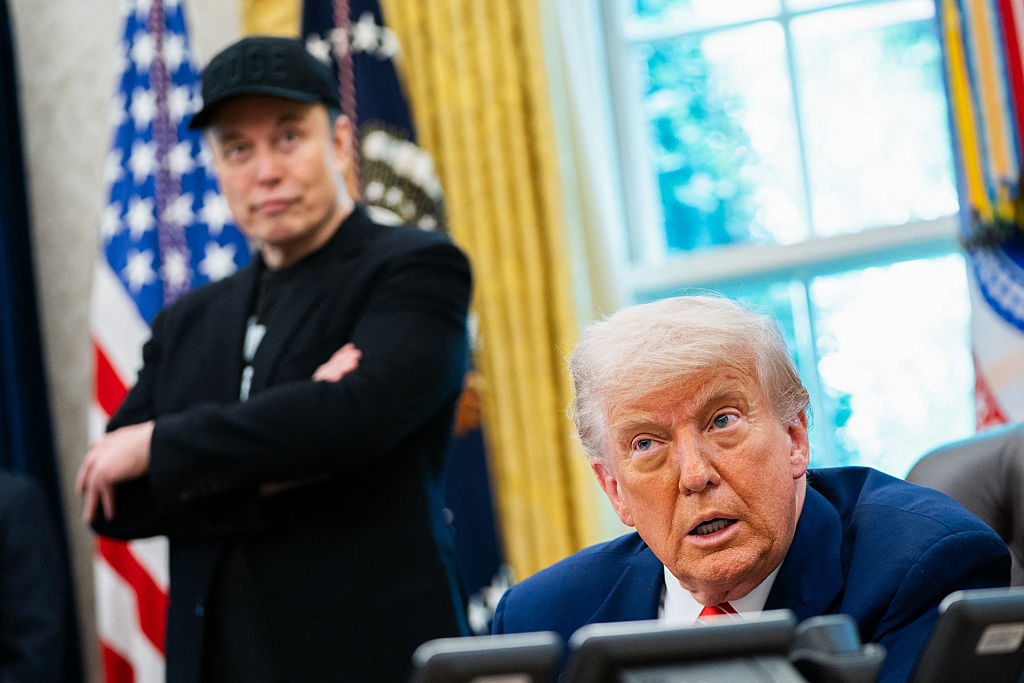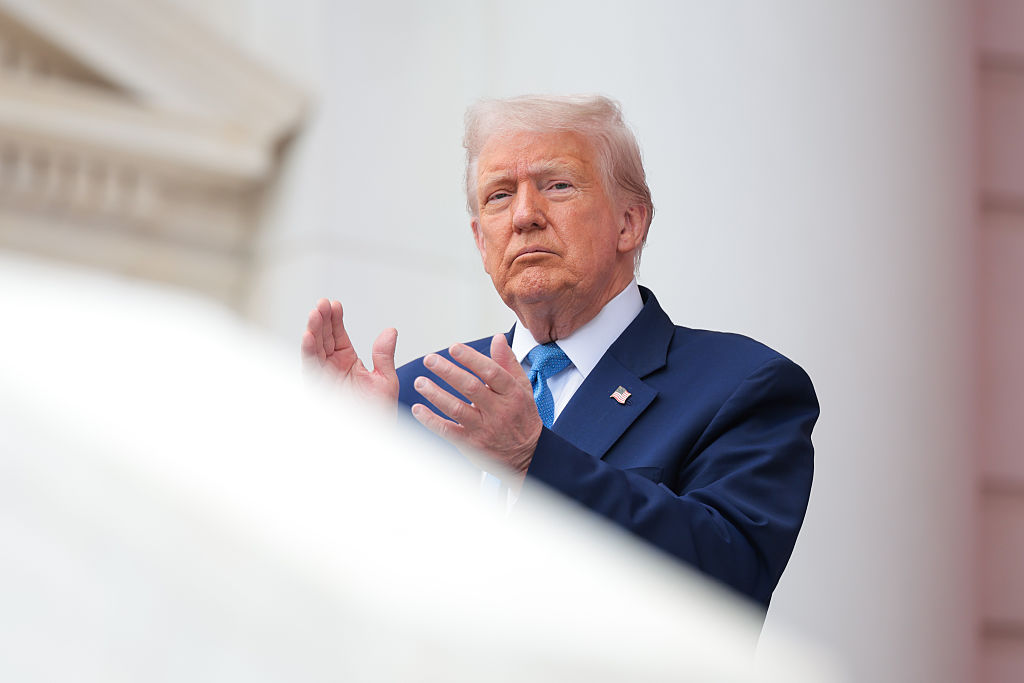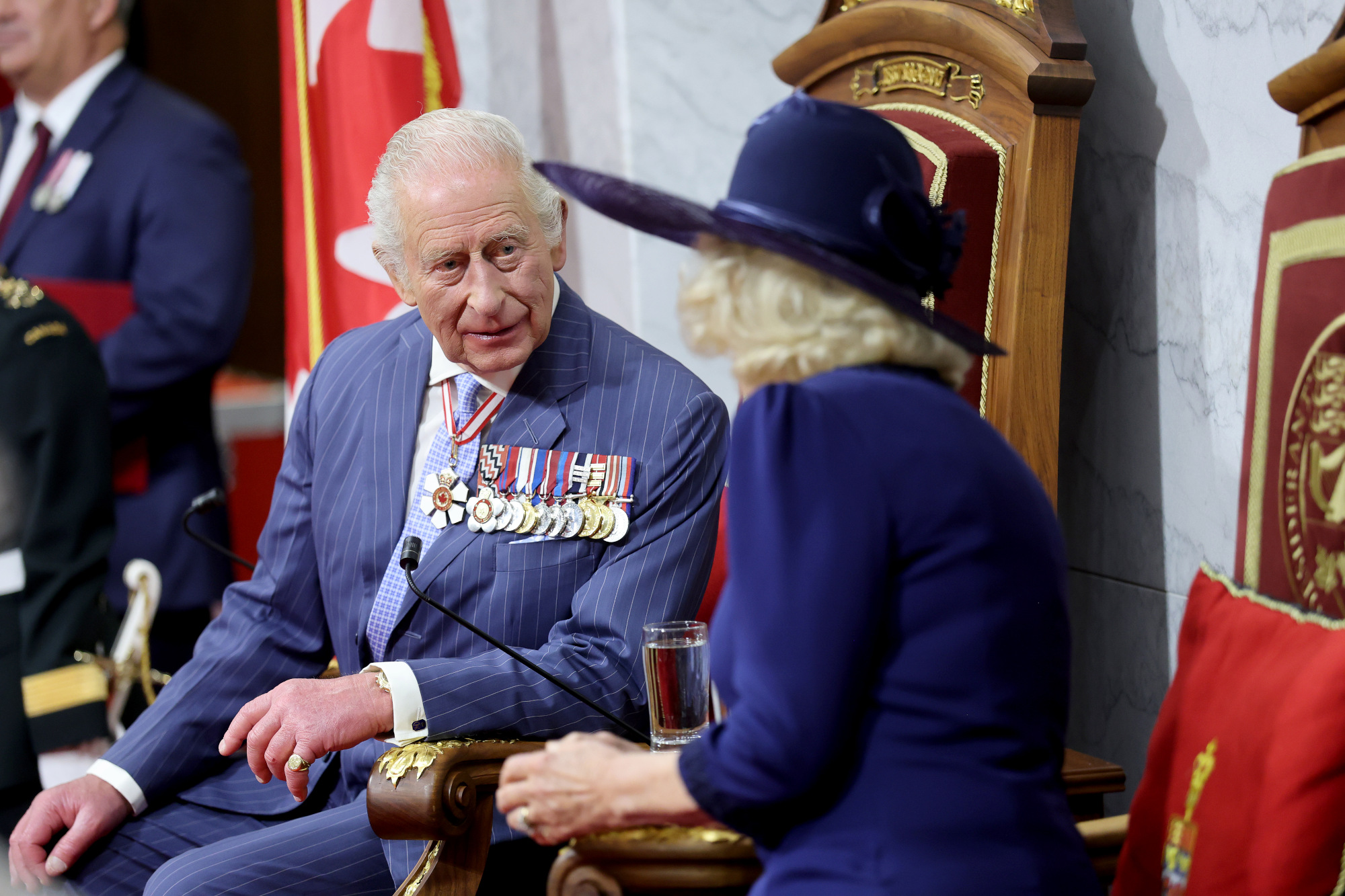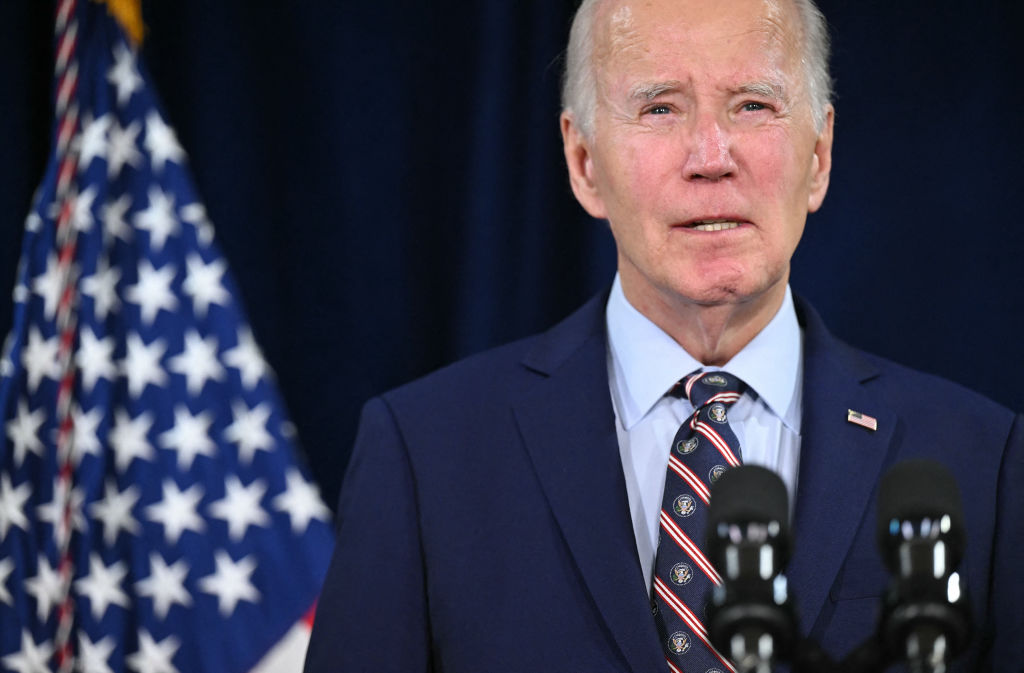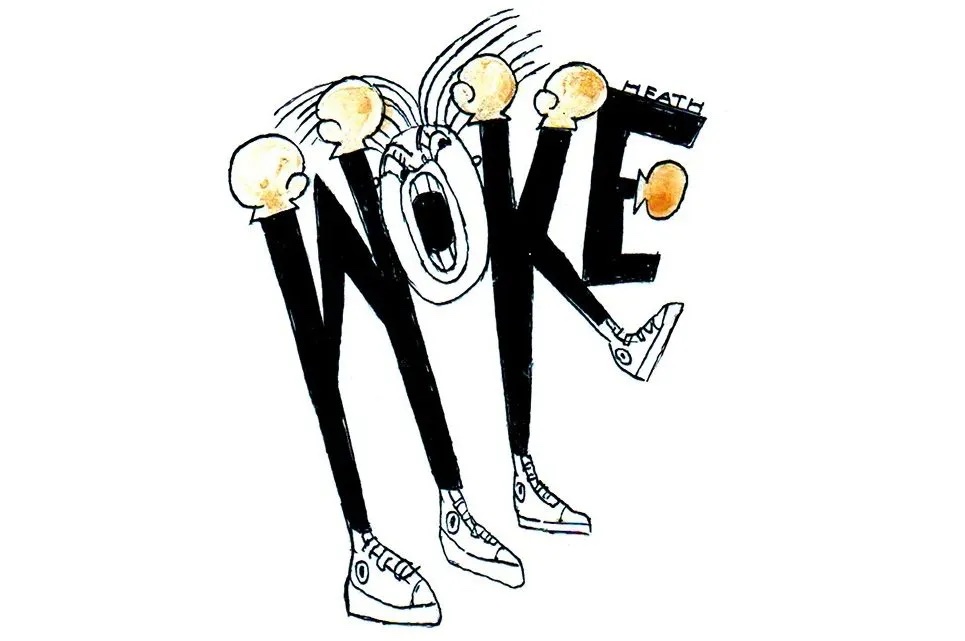When I was in high school in the late 1960s, a bumper sticker, “Question Authority,” became a common sight, as did a button saying the same thing, usually worn on a tie-dye T-shirt or denim jacket. I was among those contrary teenagers who wanted to know, “On whose authority am I commanded to question authority?”
The answer wasn’t hard to find. The man who most visibly pushed the slogan was former Harvard clinical psychologist and ardent LSD proponent Timothy Leary. He was known for his counsel “Drop out, turn on, tune in,” which was adopted by his League of Spiritual Discovery, which turned LSD into a sacrament. Whether Dr. Leary originated “Question Authority” or just promoted it is unclear, but that seems apposite. Leary was a bleary presence in the rise of the counterculture, first on the East Coast and after 1967 in California, where he further evangelized the use of mind-altering drugs.
Leary is no longer with us but “Question Authority” definitely is. You can buy “Question Authority” merchandize just about anywhere. You can also listen to the Circle Jerks sing their 1982 punk rock anthem “Question Authority.” The lyrics — perhaps I should say Lear-ics — include:
Question authority
Have they the right to say how it should be?
And:
Question authority
I’ll pay the price; the future belongs to me.
The resentment against people telling you what to do is vintage Sixties protest, and the sense of entitled self-aggrandizement is pure Eighties narcissism.
Adolescent rebellion is never limited to actual adolescents. Every age and every age bracket within it has its gleeful authority-busting counter-authorities. Think of Thoreau walking out of his family’s pencil factory to pencil his thoughts in the Walden woods, and to compose his anarchist screed “Civil Disobedience.” His unsuitability to upholding society’s standards of authority was clear years earlier when he resigned his teaching position at Concord Academy because he refused to enforce corporal punishment on miscreant students.
Refusing to punish lawbreakers, of course, is now the signature policy of the two dozen or so “Soros prosecutors,” i.e. district attorneys elected with billionaire George Soros’s financial assistance and committed to such policies as abolishing cash bail. These prosecutors include George Gascon in Los Angeles County, who effectively legalized shoplifting in America’s second biggest city; Kim Foxx, the state’s attorney for Cook County, whose lax enforcement of the law has helped make Chicago the murder capital of the US and who impeded the prosecution of race hoaxer Jussie Smollett; Kim Gardner, circuit attorney for the city of St. Louis, who has presided over a 77 percent reduction in felony prosecutions; and Chesa Boudin, San Francisco’s district attorney, who has unleashed a tide of lawlessness in that city.
These are not cases in which the concept of “authority” has itself vanished, but rather in which offices invested with authority are now occupied by those who reject the established meaning and purpose of the law. They do not seek to protect the public from predators, but to elevate the predators to immunity from lawful interference.
But this isn’t an article about Soros prosecutors or the law per se. Rather I am interested in how authority across a wide range of institutions has been flipped, queered, eroded, hollowed out, and blown up. Those who once denounced mindless conformity to society’s standards are now demanding mindless conformity to their own edicts. Let’s consider a few of these.
That Disney as a business corporation has a certain kind of cultural authority over what is appropriate for children cannot be doubted. But that authority is rooted in the trust of parents and continually renewed generation by generation by the company as it upholds ideals such as kindness, friendliness, and courage.
Disney began to shift to gay-friendly themes in the 1990s, but it has only been recently that the company has crossed into aggressive advocacy for gay causes. Disney threw a fit after Florida Governor DeSantis signed the supposed “Don’t Say Gay” law. Its senior programming executive Latoya Raveneau told a meeting of Disney employees that her team has a “not-at-all-secret gay agenda” and that she is regularly “adding queerness” to children’s programming “wherever she could.” Disney’s official position is that the Parental Rights in Education law will interfere with the gay agenda and therefore must be repealed.
This is a straightforward confrontation between two kinds of authority, the traditional authority of parents over the moral formation of their children and the woke authority of a progressive movement that encourages young children to develop whatever “gender identities” appeal to them at the moment. These are not simply opposites. Parental authority derives from deeply rooted bio-social facts. Without parents engaged in the moral formation of the children, there would be no human society, or human beings for that matter. Progressive authority, by contrast, exists only by subversion of an existing order. It is oppositional in character and depends on a purely imaginary future in which sex is replaced by gender fluidity and unbounded appetite.
Disney is a conspicuous example of a “woke” corporation, but there is a long list of ostensibly for-profit companies that have only now decided to put “Environmental-Social-and-Corporate Governance” (ESG) ahead of the interests of investors. This is a breakdown of authority at another basic level: the authority of the owners of a for-profit company are being told by their boards and executives that their interests are now subordinate to an ideological and political movement. The shareholders in these companies believe they own “property” in the extended sense and should have the rights accorded to property owners. But the ESG advocates aim to diminish those property rights in favor of their own ideas of social justice.
That movement asserts an authority of its own, a moral authority that is strong enough to justify a certain kind of theft. Some investors support the ESG movement, but most don’t have any choice in the matter. If they invest in mutual funds, for example, they are paying a hidden tax to the ESG movement via the diverting of company assets to fight “global warming” and other such causes.
The claim to such moral authority is akin to what those radical prosecutors claim when they decide, for example, that armed robbery will be treated as a misdemeanor. What’s “moral” about this? That’s a serious question that never gets a serious answer.
The non-serious answer is that our society is fundamentally unjust and therefore all-out rejection of traditional authority is warranted. The reason this isn’t a serious answer is that the standard of “justice” it invokes is nebulous. It is the Circle Jerks howling, “Question authority. I’ll pay the price; the future belongs to me.” The implied rejection of “ownership of capital” and “rule of law” are, in that sense, the tip of the iceberg. Just as Disney favors allowing teachers to advance a sexual worldview to impressionable children, the earnest proponents of ESG favor resetting the market to allocate capital to their social engineering projects.
But the efforts to dislodge traditional authority and send it cascading towards oblivion are often self-contradictory. Those who would dispatch the old authority typically cling to its form for their own agendas.
The Covid epidemic for many Americans called into question the authority of the medical establishment, including both civil authorities and the pharmaceutical industry. We now know that the esteemed Dr. Fauci deliberately lied to the nation because he thought it was for our own good. Many Americans (including me) believe his deceptions went much further, and are now watching the CDC issue major “corrections” to Covid statistics it issued in the past. Yet these authorities imposed far-reaching public health measures on the authority of the “science.”
The Covid issues blur into the ESG agenda. The World Economic Forum, for example, has called for “The Great Reset,” which aims at using the Covid shutdown as a portal to enforcing ESG standards on the international economy. As the WEF puts it, “The Covid-19 crisis, and the political, economic and social disruptions it has caused, is fundamentally changing the traditional context for decision-making.” Some might call this a power play, but it is more accurately another instance of inverting an authority structure.
Scientific authority is surely among the most profound and credible authority in the modern secular West. But the hysteria deliberately whipped up by governments acting in the name of “science” has dented that authority. We are learning to see scientists as just another interest group whose loyalties can be bought or at least channeled.
Climate change hysteria has likewise undermined scientific authority. Large numbers of people around the world now grasp that the International Panel on Climate Change is about as reliable an arbiter of climate data as Nostradamus. It is not that the climate doesn’t change, but that both its patterned cycles and its chaotic aspects are beyond the reach of the “models” that are put forward to predict catastrophic temperature increases. And the reach for remedies in the form of drastic CO2 reductions likewise begins to register as a political ploy, not a well-grounded scientific proposition.
The erosion of legal, economic, medical, and scientific authority at the hands of powerful people who may not have the common good at heart could hardly have reached its current threshold without the media and higher education. Both these institutions derive their authority from the public’s belief that they are reliable filters of fact and truth. Each may be understood to embody values and opinions as well, but “the news” is not news unless it is to be relied on for an accurate rendition of the facts. And “education” is not education if instead of drawing students into the search for truth it supplies intellectual conformity.
Is there anyone today who believes our great newspapers and mass media outlets are any more reliable arbiters of fact than the soapbox orators in Union Square? And would you ever turn to the tenured professor of a major university for a fair-minded assessment of, say, the George Floyd riots or the 2020 election?
Our military used to be among the sources of authority that enjoyed widespread respect, despite a rather checkered history of public accountability. We have known at least since the publication of the Pentagon Papers in 1971 that our top brass hides a lot out of cringing fear that they will he held accountable for their mistakes. But nothing compares to the implosion of military authority following the debacle of the US withdrawal from Afghanistan, and the simultaneous campaign by our military leaders to lower standards for female recruits and to advance policies of transgenderism in the ranks.
Authority can be found in every field of endeavor. We recognize religious authority, the authority of art, music, and literature, and we have rating agencies for almost everything. They function as special-focus authorities on matters on which it would be very difficult to reach independent judgment: bond ratings, wine reviewers, movie ratings, Pulitzer Prizes. I recently called into question whether the Pulitzer Committee, which has never rescinded its 1932 award to New York Times reporter Walter Duranty despite his complicity in Stalin’s Ukrainian genocide, should still be regarded as a credible authority. But it is an interesting sidelight that a self-proclaimed authority often can maintain its claims no matter how often it errs or even when it is known to be corrupt.
Why is that? For one thing, authority in some sense is indispensable in culture. We can’t all of us know everything, and even if we distrust Pravda, MSNBC, Fox, Yale, or the Pulitzer Committee, we want to know what they are saying. The breakdown of authority always produces new authority from the rubble, or at least a pseudo-authority that will have to survive some hard-nosed “Question Authority” interrogation. Power all by itself is never authority. And though it certainly helps to enforce a claim, power by itself lacks legitimacy and it will be resisted. Look at all those smoldering Russian tanks that were met with barrages of “no thank you” from around Kiev.
Authority also involves exclusion. To assert authority is to deny rival claims. Disney versus DeSantis is not just a disagreement about the merits of a law. It is also a disagreement about who can and should shape young children. Authority is a claim to expertise. Dr. Fauci versus the Great Barrington Declaration is not just a disagreement over the best way to respond to a viral epidemic. It is also a disagreement about the sources of knowledge and the basis of public action pitting a government bureaucracy against medical practitioners.
“Authority” is, let’s say, an abundant concept. It comes into our lives from every direction. But at the moment we are in the midst of an almost comprehensive faltering of the idea. Can we trust the government’s medical or legal authority? Do we trust our educational or media authorities? Is the world of business now so woke that it too has to be set on the shelf as another branch of a conniving establishment? For those of us who harbor doubts about how our elections are run, the authority of the governing bodies is a frail reed. Watching the FBI and the rest of the Justice Department as it indulged unfounded conspiracy theories during the Muller investigation leaves the taste that those who claim authority to uphold our laws are often those least to be trusted with the meting out of justice.
When authority wobbles on so many pivots at once, it becomes ominous that even more fundamental forms of authority are at stake. Intellectual authority has been under assault for thirty or forty years. Whether we call this relativism, post-modernism, or even some version of “critical thinking,” it is increasingly clear that our culture has opened itself up to creating “narratives” or telling stories not anchored in ascertainable facts or even open to cross-examination. Nikole Hannah-Jones’ preposterously inaccurate 1619 Project not only won a Pulitzer Prize but is now ensconced in tens of thousands of school classrooms.
The “antiracism” campaign joins the Covid hysteria, the January 6 Committee, the climate change panic, and the ESG bandwagon as attestation that we are living now in Timothy Leary’s world. We’ve questioned authority into near extinction. Time to tune in to the results.



